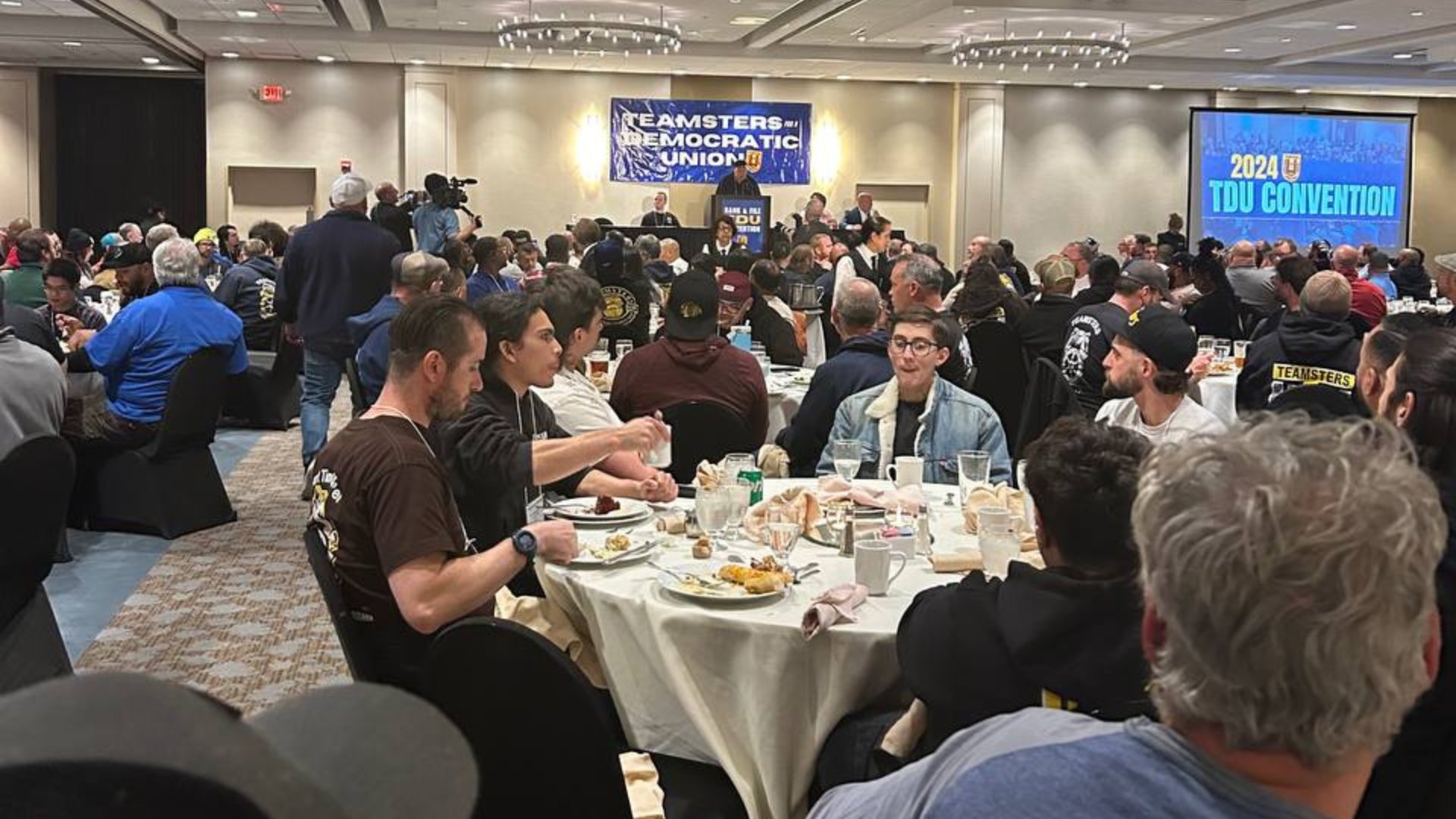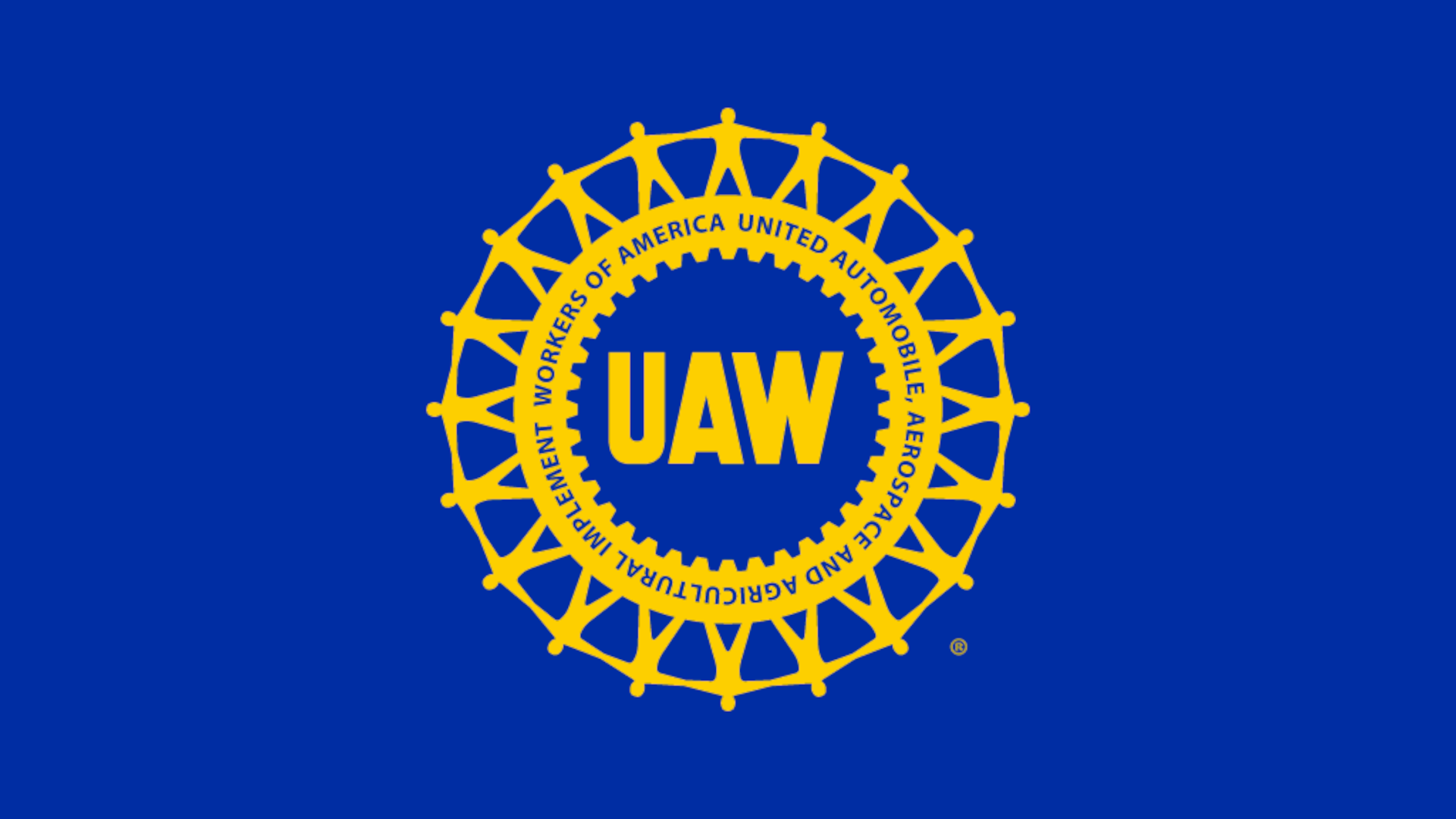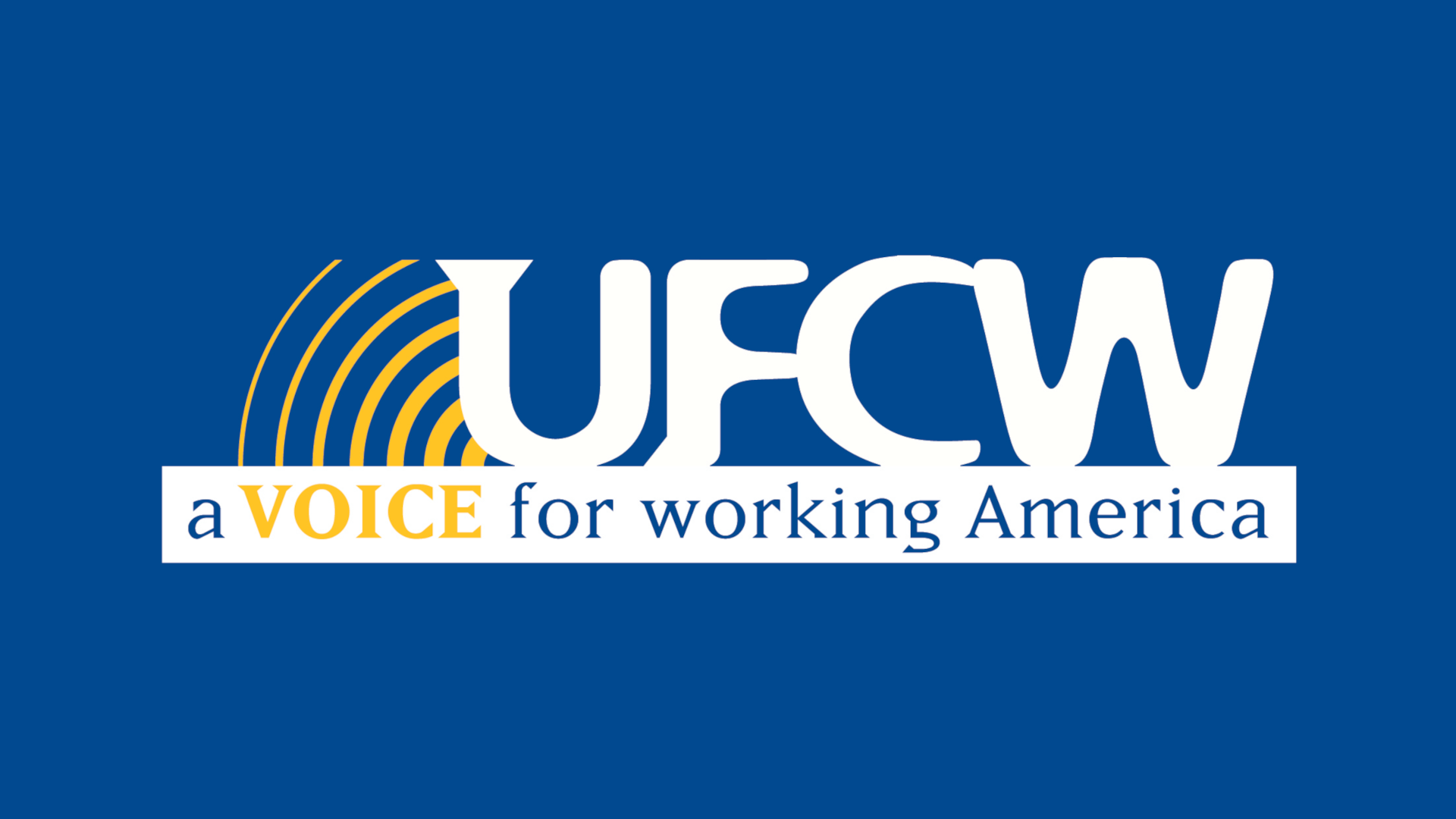Originally published in Labor Today
CHICAGO, IL—From November 1st – 3rd Teamsters For a Democratic Union (TDU) held its annual Convention in Chicago. Over 600 rank-and-file union activists, more than 50 of whom represented Amazon workers across the nation in the Teamsters’ union met to deliberate over the direction to be taken over the next year by the International Brotherhood of Teamsters. The IBT has dramatically changed direction towards a more militant and aggressive stance in dealing with union-represented companies since the election in 2021 of the reform slate Teamsters United (of which TDU is a member organization) and General President Sean O’Brien.
That election was a response by the union’s rank and file to years of concessionary contracts negotiated by the previous administration that left the membership divided and unable to mount the fight back necessary to overcome management encroachment on their rights and standards on the job. Particularly a hated two-tier system in wages and excessive overtime, which was finally abolished in last year’s UPS contract by the incoming administration. TDU played an instrumental role in that turnaround.
The Convention heard from speakers representing UPS, DHL, and Amazon on the progress of organizing campaigns, contract enforcement, and bargaining as well as fiery speeches by General President O’Brien and the president of the Association of Flight Attendants-CWA (AFA-CWA) Sara Nelson that called for a class struggle orientation in our unions to rebuild Labor’s power.
Increased Militancy and Using Our Ability to Strike
Several speakers pointed to the more frequent exercise of our strike weapon to achieve contract gains and beat back concessionary settlements. The IBT has organized over 100 strikes within the last 2 ½ years contrasting with the previous administration’s 32 strikes over a decade. Included in those figures are the strikes that have been developing at the “nation’s sweatshop” Amazon.
Contract enforcement has been a central focus of activists at UPS seeking to implement the contract language won in last year’s contentious bargaining campaign. Indispensable to those seeking to improve shop floor conditions is the development of skills necessary to organize job actions and campaigns that involve members on the shop floor.
To this end, the Convention held over 30 different workshops on topics ranging from “Overcoming Fear at UPS”, and “Organizing Marches on the Boss” to “How to Hold a Successful Meeting” and “Reforming and Transforming Local Unions”. Workshop instructors diligently prepared highly engaged and intensive programs to share the skills acquired and expand the union’s base.
The Political Environment and the Need for a United Labor Movement
Throughout the Convention organizers strongly emphasized the necessity of maintaining and expanding unity within the labor movement and in our unions. The refrain consistently brought home by organizers was one of unity against division with a looming presidential election that threatens to split the membership of the IBT on political lines, potentially paralyzing the ability to wage effective struggles against employers.
Weeks prior to the Convention saw the new union leadership refuse to endorse any presidential candidate citing the failure of Democrats to deliver on campaign promises of necessary reforms to labor laws and the reinforcement of American workers’ organizing rights. The decision was hotly contested by many corners of the union while many others lauded the decision as a step toward independent labor politics. While no consensus was reached, many came away with a determination and commitment to unity.
The raucous speech given by AFA-CWA president Sara Nelson was a highlight of the weekend sessions. In her speech, she implored shop stewards and activists to orient themselves to a class-wide perspective and intensify our struggles against the capitalist class that is strangling labor and gutting our rights and standards, illustrating her point with numerous examples of workers doing just that today, led by women and people of color in a variety of industries.
Looking Ahead and Organizing a Pole of Class-Oriented Trade Unionism
The fights that loom in the near future will require a class-oriented approach if they hope to be successful. With that knowledge, many Convention goers understood clearly the necessity of expanding their struggles beyond individual companies and industries and the importance solidarity plays in their day-to-day fights with management.
TDU, since its founding in 1976, has sought to be a pole of rank-and-file democracy in the labor movement, being a force that has seen the accomplishment of constitutional changes, a national UPS strike in 1997, and the reversal of many concessions bargained by compromised union officials. Plans discussed by Convention attendees include the expansion of rank-and-file steward networks at the regional level, campaigns for leadership in local unions and joint councils as well as the building of solidarity with other unions engaged in struggles. It will be a fight to accomplish these tasks, but it is necessary to advance the struggles of American labor.




